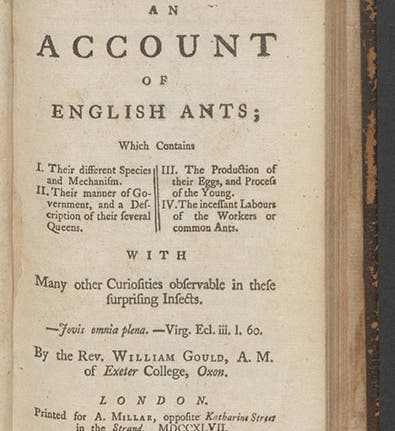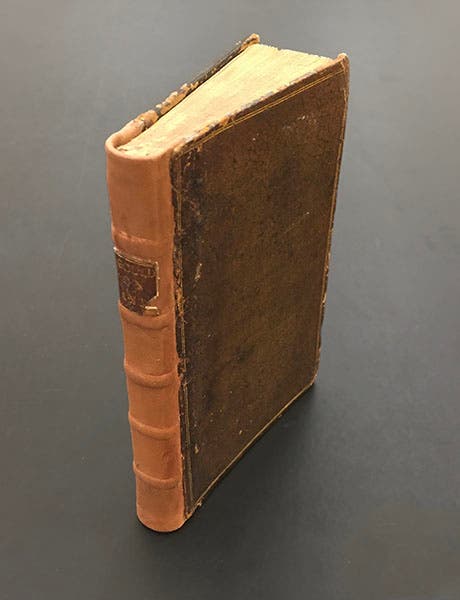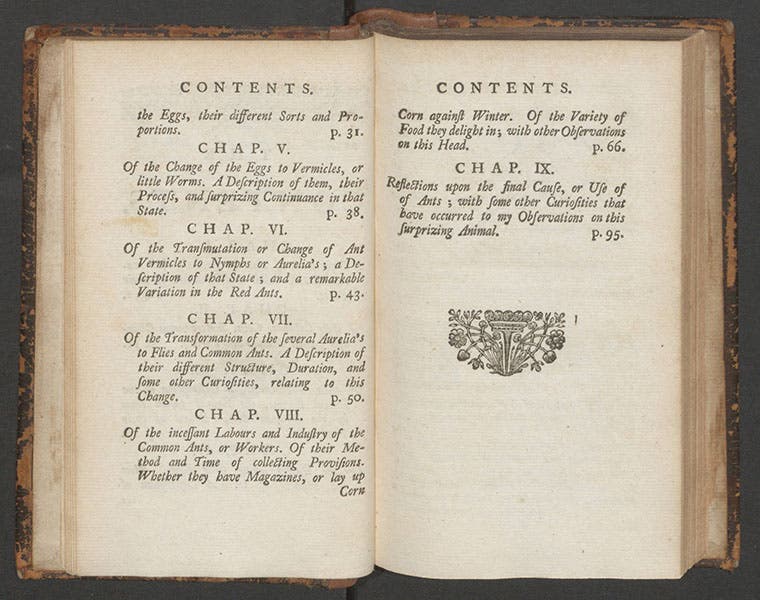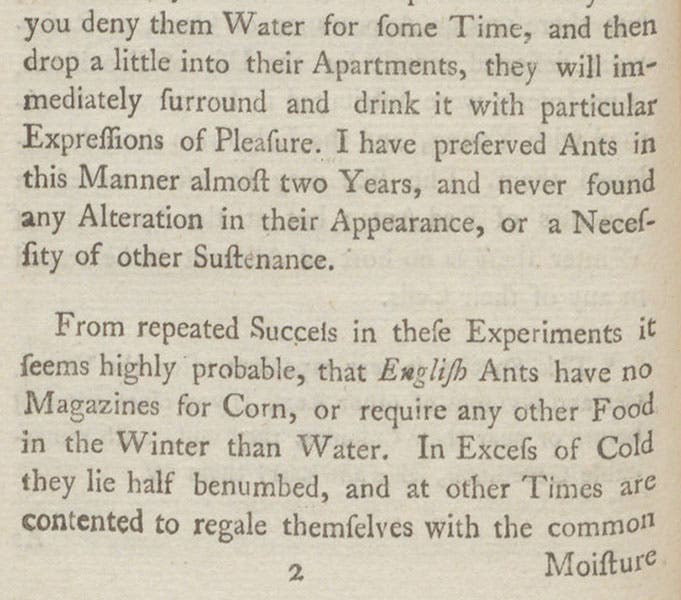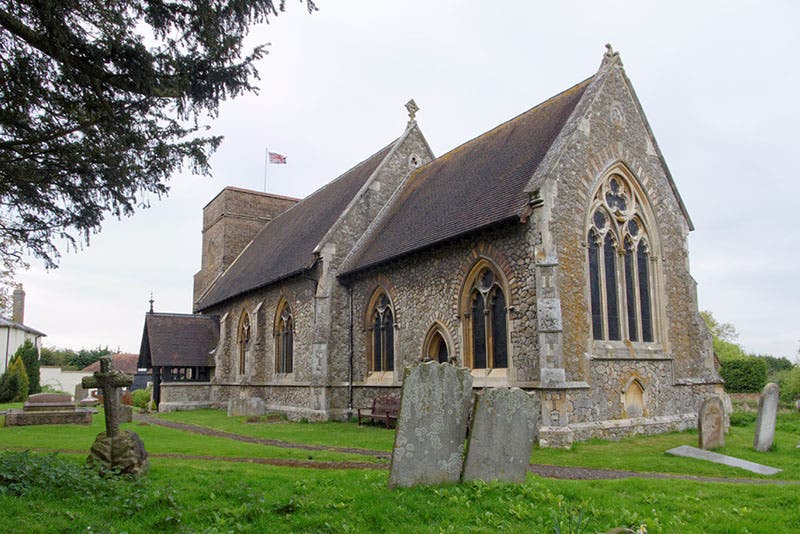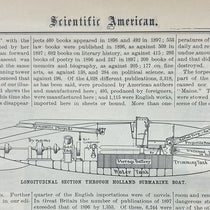Scientist of the Day - William Gould
William Gould, an English clergyman and naturalist, was born Mar. 16, 1715. Gould studied at Exeter College, Oxford, and took up a living at Stapleford Abbotts in Essex. It appears that, other than his flock, his particular interest in life was ants, which he studied with great enthusiasm. After some years of observations, he published An Account of English Ants (1747). This is acclaimed by myrmecologists (ant-people) as the first English book on the subject. We happen to have a copy in our History of Science Collection.
The book is entertaining to read, providing you are comfortable with both baroque prose and natural theology. The book, only 109 pages long, is divided into 9 chapters. The early chapters discuss the different kinds of English ants (Hill, Jet, Red, common Yellow, and small Black, in Gould's terminology), the Queen and the caste system, the kinds of habitations that ants build, their metamorphoses, But the most intriguing, at least to me, were the last two chapters. To go in reverse order, the final chapter, chapter 9, is called "Reflections upon the final Cause or Use of Ants". This is natural theology at its finest, founded on "the Maxim that infinite Wisdom has ordered nothing in vain." John Ray and William Derham would have agreed in seeing the study of final causes as the ultimate goal of studying nature.. We learn that ants are here for many reasons, but mostly to provide "Sustenance for many Species of Animals." The purpose of ants is to be eaten, although their affection for their young and loyalty to the Queen also provide admirable lessons for us all.
The preceding chapter, chapter 8, is of even more interest; its title begins: “On the incessant Labours and Industry of the Common Ants, or Workers. Of their Method and Time of collecting Provisions. Whether they have Magazines, or lay up Corn against Winter..." Gould was intrigued by the possibility that ants store up grain for the winter. This was a commonly held truth that found backing in Scripture; a familiar passage in Proverbs 6:6-8 says: "Go to the ant, thou sluggard; consider her ways and be wise; which having no chief, overseer, or ruler, provideth her bread in the summer, and gathereth her food in the harvest." That was enough for most naturalists; Ray and Derham took it as an unquestioned truth of nature. For some reason – perhaps he had read Sir Thomas Browne’s Pseudodoxia epidemica (1646) – Gould decided to put the adage to the test. Gould observed all kinds of ants, dug up their nests, noted their behavior, and in the end, denied the truth of the proverb – he could not find one example of food hoarding or storage by ants. Gould concluded that, either there existed "Oriental ants", not found in England, who did store up food. "Or perhaps it might have been a received Opinion (as was the Sun's Motion) from whence this great Prince might recommend it a worthy Example of Industry and Wisdom." It is interesting to see Copernicanism invoked as evidence that when the Bible talks about ants, it is not necessarily presenting a literal truth.
It is often stated, in encyclopedia entries about Gould, that he ran into trouble with the Church of England because of his criticism of a passage from the Bible. Since no evidence is ever cited to support this, I suspect that this is a received opinion of its own, and I doubt that Gould’s admirable study of ants got him into trouble with anyone.
It is not surprising that the rector of a small church in Essex did not leave a portrait behind, or really anything tangible except his book. The Church of St Mary in Stapleford Abbotts still stands, but it was mostly rebuilt in the 19th century (fifth image). If there is a plaque anywhere about, commemorating their most famous resident cleric, I could not find it a mention of it. Perhaps the ants have erected their own memorials in the churchyard. Dr. William B. Ashworth, Jr., Consultant for the History of Science, Linda Hall Library and Associate Professor emeritus, Department of History, University of Missouri-Kansas City. Comments or corrections are welcome; please direct to ashworthw@umkc.edu.

